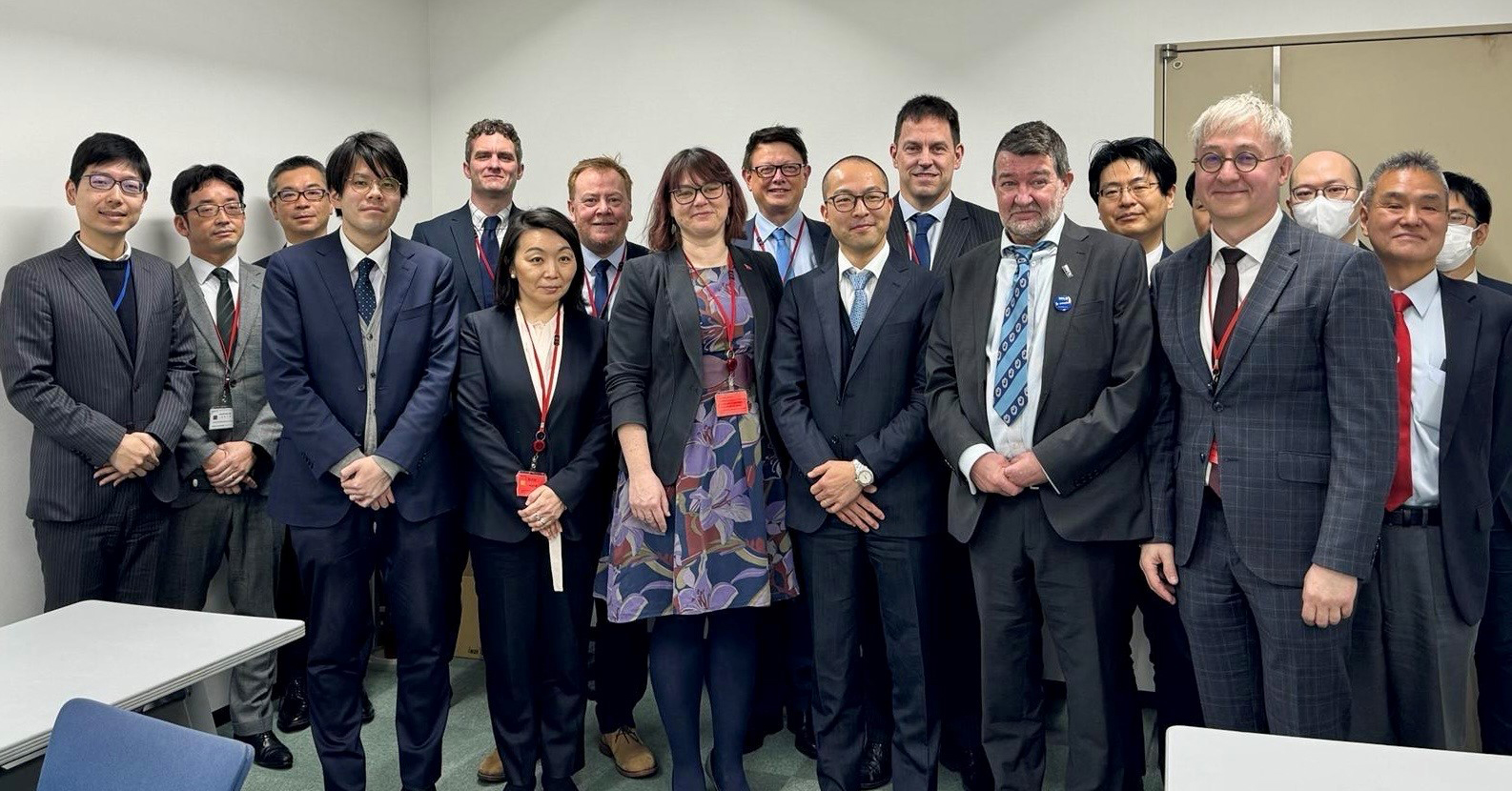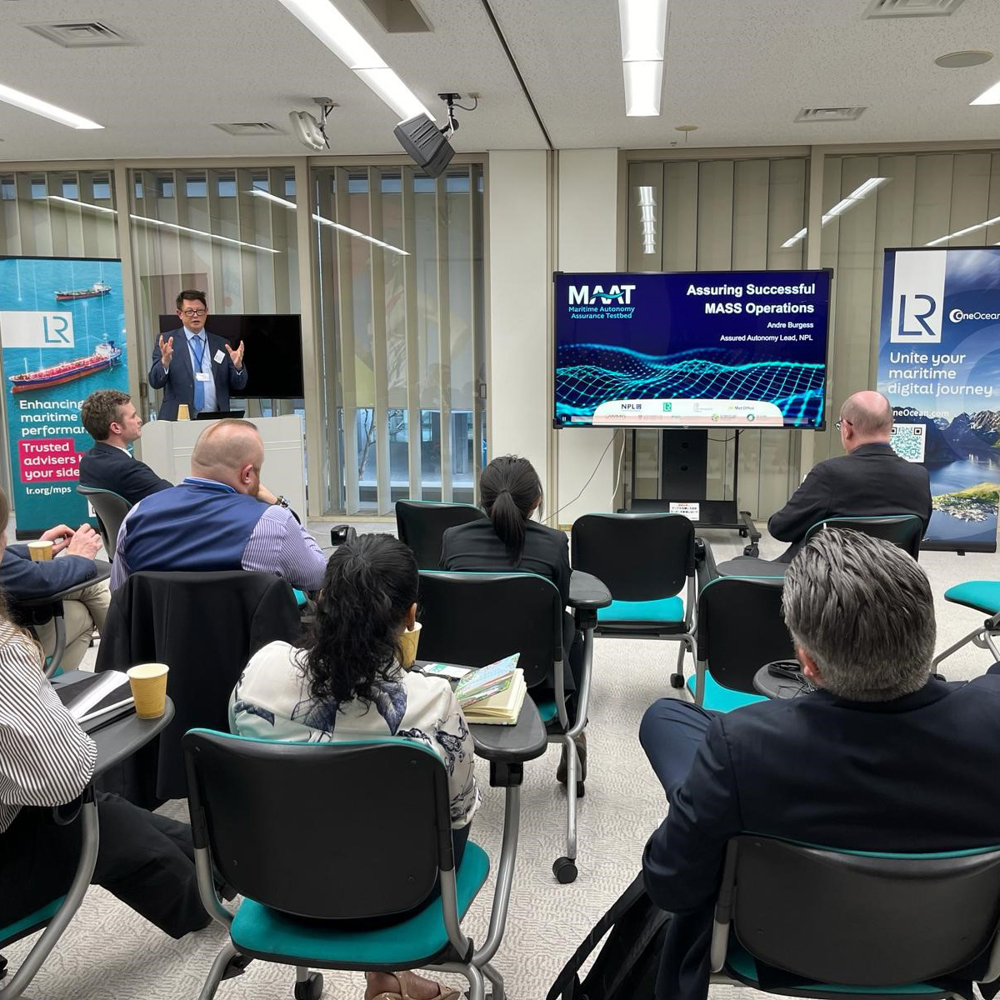Lloyd’s Register (LR) and the UK’s National Physical Laboratory (NPL) are leading the charge on autonomy assurance with a series of workshops being held in Japan this week.
Involving key stakeholders from the UK and Japan, the four-day event aims to support the development of standards, taxonomies and assurance frameworks to empower all maritime stakeholders to maximise the opportunities from maritime autonomy. It will also serve to further strengthen the Japan-UK strategic partnership.
Anthony Boylen, LR’s Principal Specialist, Assurance of Autonomy, said: "Following on from the work of the Maritime Autonomy Assurance Testbed, this workshop will help further define the critical enabling capability to cement the development, testing, innovation and commercial realisation of effective and safe autonomous vessels and related technologies. Further, in assisting in international engagement, we hope to further strengthen the pathways for autonomy exploitation."
Maritime Autonomy Assurance Testbed (MAAT) is a UK programme led by LR and NPL supported by other government agencies and several world-leading universities. It is expected that the range of stakeholders at this event will increase the understanding and visibility between MAAT and regulatory bodies.
Japanese attendees for the workshops include, among others, the Ministry for Land, Infrastructure, Transport and Tourism and its Maritime Bureau, the Nippon Foundation, the Japan Coast Guard, MTI, as well as several members of the Japan DFFAS+ Program, including MOL, NYK, K LINE, and prominent Japanese Technology Makers like Furuno, JRC and others.
In addition to LR and NPL, UK attendees include the British Embassy at Tokyo, UKHO, the Met Office, WMG University of Warwick, University of York, Alan Turing Institute and the University of Plymouth, and the Marine and Coastguard Authority (MCA).







